detail profile michel duran
Peran Yang Di Mainkan Michel Duran
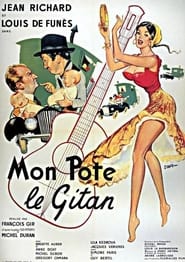 The Vdrines whose head of family...
The Vdrines whose head of family...My Pal the Gypsy 1959
The "Védrines", whose head of family is a publisher, are well established in Paris. The "Pittuiti", on the other hand, are gypsies camping out in the suburbs. Young Zita belongs to the tribe and meets Théo Védrines, the publisher's son, a wild seducer. Zita is soon forced to tell her family that she is expecting a child. A scandal for the Pittuiti family, who instruct Zita's brother to apply the law of retaliation, Bruno must in turn seduce the pleasant Gisèle Védrines. And why not? But while Théo gradually becomes an anarchist, Bruno becomes more and more embourgeoise as Védrines discovers in him a real talent for writing. Still, Bruno and Gisèle will be as happy as Théo and Zita ever were.
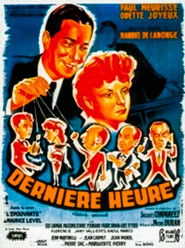 A journalist who deals with the...
A journalist who deals with the...Last Hour, Special Edition 1949
A journalist who deals with the column "courier du cœur" has the absurd idea of launching an investigation into the death of a pianist whom he claims to have been murdered. To dazzle his wife, a reporter for the newspaper, he disguises the facts in such a way that the police suspect him, then declare him guilty. It takes a number of adventures to get him out of this mess and get him back into his section.
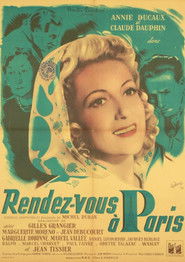 When she sets sail for Lisbon...
When she sets sail for Lisbon...Rendezvous in Paris 1947
When she sets sail for Lisbon, Catherine Laurence, a famous classical singer has but one wish: to be left alone. Unfortunately she soon gets bothered by a rude, invading man. Later she gets to know him better and becomes susceptible to his charm. She realizes that Michel is in love with her and it is not long before she goes beyond her disastrous first impression. Although not quite sure he is a perfectly honest man she entrusts him with a delicate assignment: keep her precious pearl necklace coveted by Van Coolart, a fake Dutch diamond-merchant, and give it back to her in Paris. If he is a robber himself, so much the worse for her. But if Michel keeps the Paris rendezvous love is in store for both of them. Nevertheless there is a crucial factor she regrettably disregards, composer Raymond Aubour, a faithful friend who has been her suitor for ten years.
 A female escapee from a reform...
A female escapee from a reform...Heartbeat 1946
A female escapee from a reform school joins a pickpocket academy in Paris.
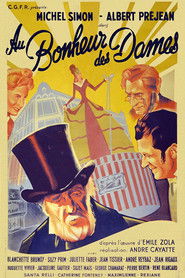 The struggles of a small business...
The struggles of a small business...Shop Girls of Paris 1943
The struggles of a small business owner come to light in this film by director André Cayatte. The proprietor of a fabric shop, M. Baudu faces stiff competition when a department store moves in across the street, the first of its kind in 1860s Paris. On top of the stresses associated with the rival retailer, Baudu’s niece and two nephews take up residence with him after recently being orphaned. The niece, Denise Baudu, sees the writing on the wall for her uncle’s business so she takes a job as a shop girl with his competitor and despite her success the decision does not register well with the family.
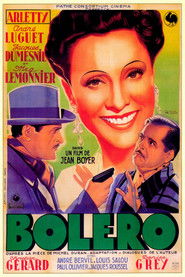 As her neighbor Rmi Courmont has...
As her neighbor Rmi Courmont has...Boléro 1942
As her neighbor Rémi Courmont has told her off for making his ears bleed with Ravel's Bolero, a music piece she plays at full volume all the time, Anne-Marie decides to get even with him. She sets up a hoax with the complicity of her friend Catherine, who agrees to post as Remi's mistress to embarrass him. Just then, Niquette, Rémi's real lover, resurfaces.
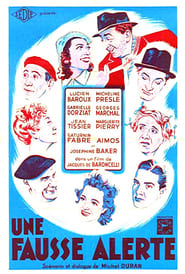 Cabaret star Zazu intervenes when young...
Cabaret star Zazu intervenes when young...The French Way 1940
Cabaret star Zazu intervenes when young lovers are sundered by their parents' feud.
 Posing as the fabulously glamorous Countess...
Posing as the fabulously glamorous Countess...I Was an Adventuress 1940
Posing as the fabulously glamorous Countess Tanya Vronsky, a poor young ballet dancer and her two accomplices are really a team of skilled con artists! They mingle with Europe's high society, always looking for the next wealthy victim to fleece with their fake jewellery scam... Then Tanya meets the dashing young Paul Vernay. At first she wants to rob him. Then she decides she wants to marry him and to leave her criminal past behind her. Her accomplices agree but only if she'll join them in one last, big swindle...
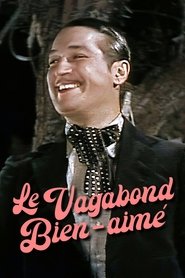 Gaston an artist in love with...
Gaston an artist in love with...Le Vagabond bien-aimé 1936
Gaston, an artist in love with an upper class English girl, accepts to stay away from her when a wealthy rival offers to pay her father's heavy debt. Broken-hearted, he leaves for France with his young servant. They join a young girl as popular musicians and tour the countryside in their way to Paris, where his former love reappears.
 Philippe Lutcher an anarchist fires a...
Philippe Lutcher an anarchist fires a...Le Bonheur 1934
Philippe Lutcher, an anarchist, fires a shot at Clara Stuart, a famous stage and screen actress, but only wounds her. The star, through affectation and curiosity to know his motives, pleads in his favour at his trial, but he rebuffs her pity. After he has served 18 months in prison, they meet and fall in love.
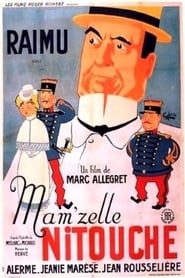 Clestin the organist of a convent...
Clestin the organist of a convent...Mam'zelle Nitouche 1931
Célestin, the organist of a convent, has written and composed a light operetta under the name of Floridor. One day, the Mother Superior asks him to chaperone one of the boarders, Denise de Flavigny, who is returning home to get married. Now, Denise, for all her goody goody looks, soon proves as saucy as can be. Things get even more complicated when Célestin starts courting Corinne, the star of his operetta, to the great displeasure of a commander of dragons, the young woman's lover. Worse, the latter is none other than the Mother Superior's brother... To say nothing of Lieutenant Fernand de Champlatreux, who happens to fall in love with Denise, his fiancée that he has never seen before...!
 The whimsical Riquets has kidnapped and...
The whimsical Riquets has kidnapped and...The Gallery of Monsters 1924
The whimsical Riquet's has kidnapped and married a well-born young girl, Ralda. They travel around Spain performing their act in a circus but Ralda's beauty arouses the director's lust. Furious at being rejected, he opens a lion's cage during Ralda's act, leaving her seriously injured. With Ralda's family on their trail, the young people set off to find a better life elsewhere.

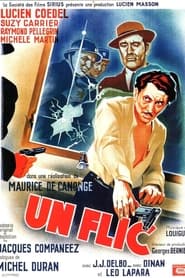 Georges hunted by the Germans had...
Georges hunted by the Germans had... Cecile a young girl who goes...
Cecile a young girl who goes...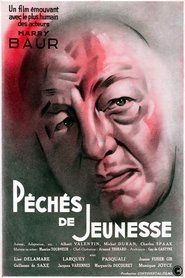 A rich businessman living alone is...
A rich businessman living alone is...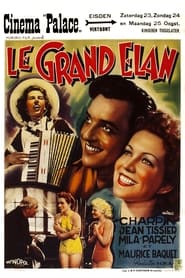 The owner of the place of...
The owner of the place of...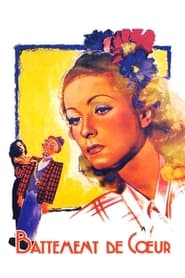 Tells the story of a young...
Tells the story of a young...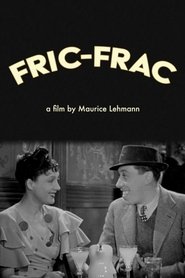 An employee at a jewelry store...
An employee at a jewelry store... A young manaboutParis cut off from...
A young manaboutParis cut off from...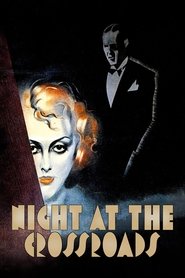 A gang of thieves utilize a...
A gang of thieves utilize a...